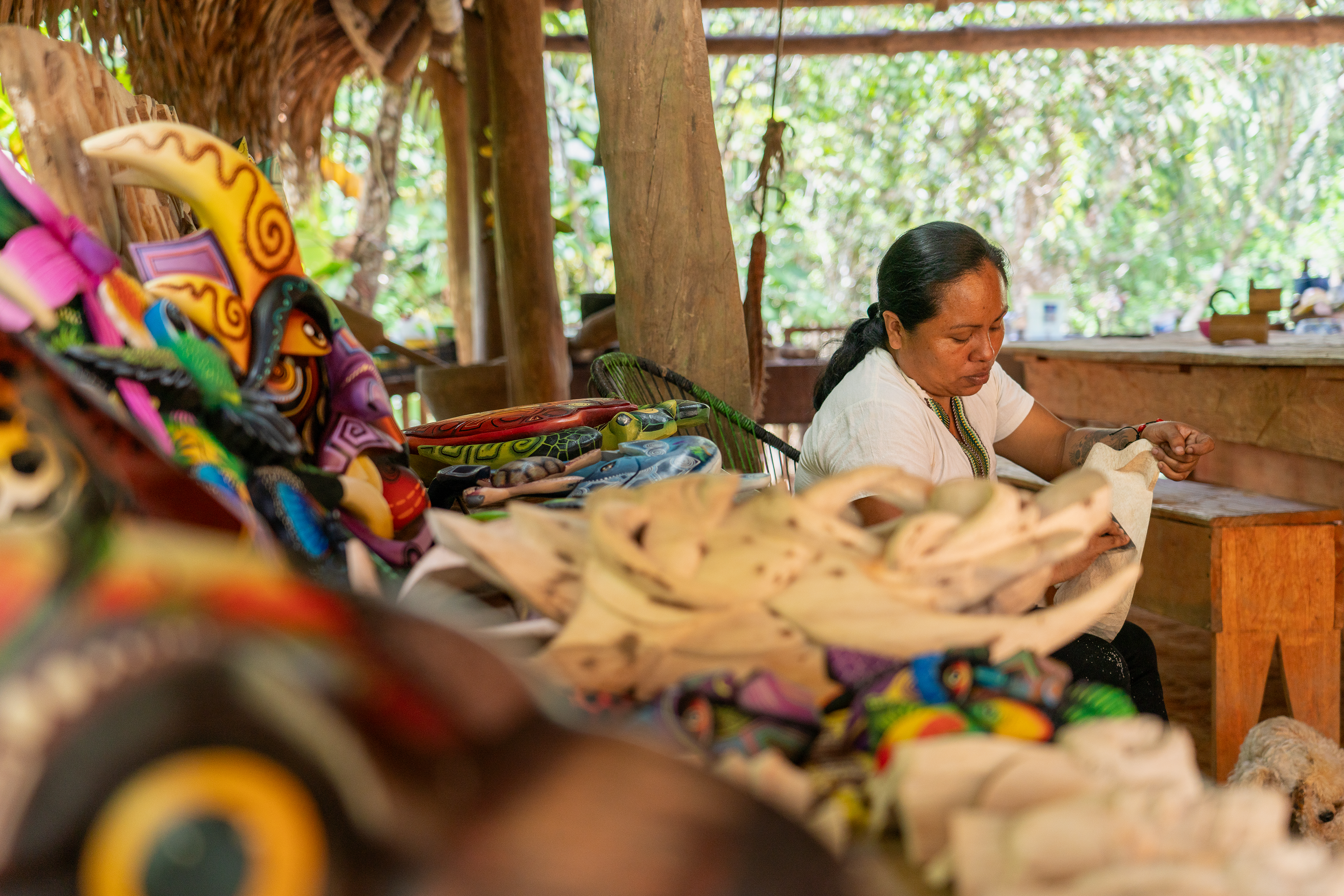
Raíces reaches its third edition, after having supported 28 initiatives in previous calls for proposals.
- The non-reimbursable funds will be directed to enterprises in the indigenous territories of Boruca, Cabagra, China Kichá, Rey Curré, Salitre, Térraba and Ujarrás in Costa Rica.
- There are currently more than 1800 hectares of forests impacted with sustainable management by the Program's ventures.
Indigenous communities are the protagonists of the Raíces Program, which this year reaches its third edition, with the objective of supporting tourism ventures and business models that promote nature conservation. In the two previous editions of the program, a total of 28 ventures have participated and nearly 270 applications have been received.
Raíces is a response to the priorities defined by indigenous peoples in the National Biodiversity Strategy. It is currently being implemented under the leadership of the National Council for Biodiversity Management (CONAGEBIO) of the Ministry of Environment and Energy (MINAE), National Indigenous Board of Costa Rica (MNICR) and the Biodiversity Finance Initiative (BIOFIN) of the United Nations Development Programme (UNDP). It is also supported by the Development Banking System (SBD), its operating agency Impact Hub, the Costa Rican Tourism Institute (ICT), the National Institute of Apprenticeship (INA) and the Ministry of Labor and Social Security (MTSS).
The program consists of two stages: Incubation, where the ventures focused on defining their business model and beginning to prepare their tourism products or services as part of the value offer of each venture; and prototyping, where all the work and learning from stage one was applied, together with the non-reimbursable funds that each venture acquired as part of the seed capital granted by the Development Banking System (SBD).
There are currently 1891 hectares of forest impacted with sustainable management by the program's enterprises. Raíces has also created conditions that promote the strengthening of the economic autonomy of all people, especially women, who are key to the conservation of natural resources and cultural identity.
"Raíces is a clear manifestation of UNDP's commitment to promoting sustainable development and preserving Costa Rica's cultural and natural wealth. We are proud to support indigenous communities in the creation of business models that not only boost the local economy, but also protect and value biodiversity and ancestral traditions," said Kifah Sasa Marín, UNDP Deputy Resident Representative in Costa Rica.
The Vice Minister of Strategic Management, Carlos Isaac Pérez detailed: "The Raíces Program is a testament to Costa Rica's commitment to inclusion and sustainability, reflecting how public policy can and should respond to the needs and priorities of indigenous communities. Since its inception, Raíces has been closely linked to the National Biodiversity Strategy, emerging from a participatory process that has listened to and valued the voices of local communities. We are proud to see how this initiative is an innovative example of how we can transform policies into concrete actions that generate positive impacts, where nature conservation and the well-being of communities go hand in hand."
Marlene Villanueva, Executive Director a.i. of the SBD, highlighted the importance of supporting this initiative that reaches regions and people in priority sectors where Development Banking System has a clear advocacy objective. During the 2024 call for proposals, resources for ₡127 million are being channeled from the Inclusion Seed Capital and Associative Seed Capital Programs. "Through Raíces, business and financial support is provided so that the initiatives can be sustainable, but that, at the same time, consider the preservation of the natural and cultural heritage of our country. Banca para el Desarrollo has a vision of financial inclusion and with these initiatives we are contributing to promote entrepreneurship, employment and development in all regions of our country.
Call for applications 2024.
From June 26 to August 11, the call for applications for new indigenous enterprises is open. Selected ideas will be eligible for up to ₡6 million in non-reimbursable funds. To this is added the possibility of opting for training courses and additional financial resources to strengthen business models, which are managed through an alliance with the National Learning Institute (INA), the Ministry of Labor and Social Security (MTSS).
Categories
Archives
- February 2026 (1)
- January 2026 (3)
- December 2025 (2)
- November 2025 (5)
- October 2025 (5)
- September 2025 (2)
- August 2025 (10)
- July 2025 (9)
- June 2025 (5)
- May 2025 (8)